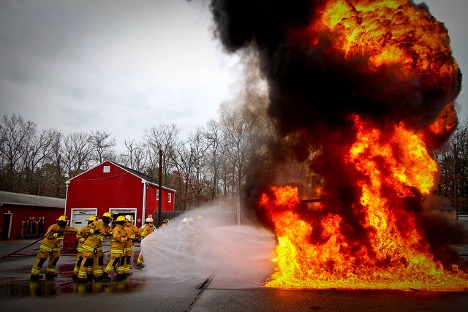Elizabeth Edwards ‘20, Staff Writer

Fires are down by 6.2% but death by fire has increased by 9.6% since 2008. These numbers, found on the website of the U.S. Fire Administration (USFA), seem incongruous at first. But the story they tell indicates you’re never too old to review what you know about fire safety and learn something new. How is it possible that the death rate from fire has gone up, if the overall number of fires has decreased?
Fire prevention has improved, which is why fire occurrences are low. But the hazards of modern fires are more intense than they once were. Now household items are more likely to be made from plastic. Polymer-based objects burn differently than wood or fiber-based goods; it’s a different class of fire. When plastic burns and releases gas, the gases are petroleum based and contain sulfur and nitrogen.
“They burn hotter and are a little harder to extinguish,” explains Dan O’Leary, a local volunteer firefighter and an Immaculata Safety Officer. “The smoke is more toxic, and it significantly reduces the amount of time that a person has to escape.” According to the USFA, people caught in a fire situation only have about 2 minutes to exit the building safely before the smoke becomes deadly.
The top causes of fires are cooking, heating & electrical malfunctions, and smoking, as cited from the National Fire Protection Association (NFPA) website. When asked about the best way to avoid a fire scenario, O’Leary’s answer was simple: “The big thing is practicing fire prevention.” But what does that mean specifically? Here are some easy tips to help you practice basic fire safety:
- Keep your space clean and free of clutter
- Take care of your electronics, including stoves and heaters, and keep them in good repair
- Do not walk away when you are cooking food, even if it’s in a microwave
- Don’t smoke indoors
- Get your smoke alarms tested and make sure they are operational
- Acquire a fire extinguisher and know how to use it
- If you hear a smoke alarm, exit the building immediately
The truth is that basic fire safety hasn’t changed much in the last decade. The nature of modern fires has. Smoke inhalation can kill a person long before a room is fully in flames. But most fires are avoidable with proper fire prevention practices. For more information about fire safety, visit www.USFA.fema.gov or check out www.NFPA.org.





